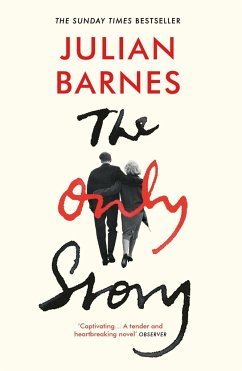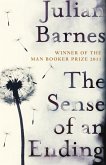“Would you rather love more, and suffer the more; or love the less, and suffer the less? That is, I think, finally, the only real question.”
Paul looks back at his life and the love of his life, Susan. He met her when he was only 19, she, at the time, was almost 30 years older, but fascinated by
the boy. She was married, had her place in society, was experienced and could teach him how to love.…mehr“Would you rather love more, and suffer the more; or love the less, and suffer the less? That is, I think, finally, the only real question.”
Paul looks back at his life and the love of his life, Susan. He met her when he was only 19, she, at the time, was almost 30 years older, but fascinated by the boy. She was married, had her place in society, was experienced and could teach him how to love. For years they had an affair, then they ran away, and then their life crumbled and fell apart. Susan fell apart. Taking her away from her well-settled life-style did not do her good, but Paul was in love. As he had always been. She was the love of his life. His only love. His only love story. Until he couldn’t go on anymore. But loving her he never stopped, until the very end. And he could never and didn’t ever want to find another woman to love in the same way.
After writing certain kinds of biographies about Shostakovich and Sarah Bernhardt, Julian Barnes returns with a novel about the greatest topic in literature: love. And it is not meant to end well, like most of the great love stories; neither Romeo and Juliet nor Anna Karenina or Emma Bovary found the love they dreamt of and could live it.
The story is told from elderly Paul’s perspective. Many decades have passed when he remembers how it all began, but he does not judge his younger self, nor smile at his naiveté. He takes young Paul just like he was: innocent, inexperienced and with great expectations. There were adults around him telling him that he was just dreaming and naive – but this did not keep him from falling for the elder woman. His unconditional love and admiration for Susan are compelling, but the reader senses that this will not end well. However, it does not turn out as expected since Susan is not the woman she seemed to be. Taken from her natural surroundings, she is completely lost. Her roots are cut and she does not get a grip on the new life.
It is a sad story, but Paul doesn’t regret it:
“What he did regret was that he had been too young, too ignorant, too absolutist, too confident of what he imagined love’s nature and working to be.”
Julian Barnes is a great writer, he knows how to tell a story, how to pace it perfectly and he finds the right words to have his characters express themselves. What I liked especially throughout the novel was the search for a definition of what the big four-letter-word ultimately means. He concludes that it can be happy or unhappy but it surely will be “a real disaster once you give yourself over to it entirely”. Well, that’s it maybe, surrendering yourself, come what may and adhering to it.
A wonderfully told novel, sad but enchanting.








